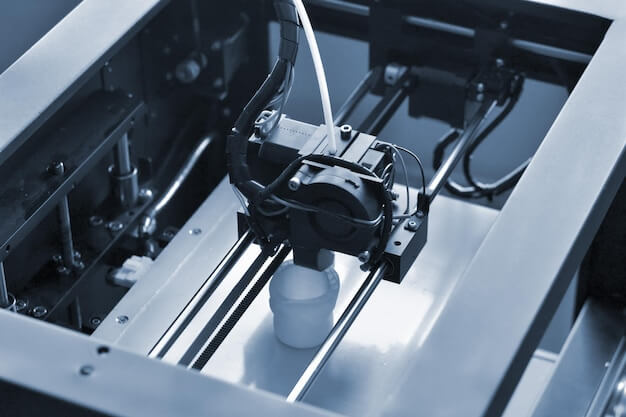As advancements in manufacturing technologies continue to evolve, industries are leveraging more efficient methods like CNC machining for their production processes. One of the commonly used materials in these operations is aluminum due to its distinct properties and varying grades. This article will delve into different aluminum grades, their unique attributes, and how they interplay with CNC machining.
Aluminum, renowned for its lightweight characteristics, superior durability, excellent corrosion resistance and high thermal conductivity, serves as a go-to material for many industrial applications. A closer examination reveals that there’s not just one type of aluminum, but several distinguished by grades which exhibit unique features.
The most commonplace aluminum grades utilized in CNC machining encompass series 2000 (Copper-Alloyed), 6000 (Silicon and Magnesium Alloyed) and 7000 (Zinc Alloyed). To understand their application scope within the CNC mechanics, let’s dissect each one separately.
1. Series 2000: Most often employed in aerospace industry due to its hardness, this grade carries good machinability but poses challenges in welding. It’s also less corrosion-resistant requiring a protective coating when exposed to adverse conditions.
2. Series 6000: Offering perfect balance between strength and corrosive resistance, this series is apt for extrusions involving complex cross-sections. Industries such as automotive and architecture prefer this grade owing to its excellent surface finish after anodizing.
3. Series 7000: Known as the strongest among all, it’s often used in high-stress structural applications such as aircraft components. Like the 2000 series, it also mandates additional protection against corrosion.
Each of these diverse grades offer specific benefits when worked upon by Computer Numerical Control (CNC) machines. Aligned with digital blueprints, CNC machines provide impressive precision coupled with speed in shaping aluminum components.
Through a subtractive machining process, CNC machines use multi-axis points to remove material layers from a stock piece (termed as workpiece), shaping it into desired specifications. This method can handle any complex or simple designs, providing enhanced accuracy and reproducibility.
However, utilising aluminum in CNC operations is not without challenges. Its soft nature may cause built-up edge leading to poor surface finish. Thus, selecting the right cutting tool geometry, feed rate, and cutting speed are vital for optimal results. Consequently, hard grades like 2000 and 7000 series which offer high resistance to deformation are preferred in large-scale manufacturing industries using CNC applications.
When it comes to Aluminum grade selection, one should consider the product’s end-use to ascertain the suitable strength-to-weight ratio, corrosion resistance, weldability amongst other attributes. Subsequently, these factors should also synchronize with your CNC machine settings for precise output.
For example, if you aim at making a sturdy yet lightweight component exposed to harsh atmosphere, opting for anodized parts made from Series 6000 could be beneficial considering its durability and good appearance upon finishing. On the contrary, for items requiring superior hardness but limited exposure to severe conditions, 2000 or 7000 would be ideal.

The evolution of CNC machining has undoubtedly simplified the handling of various metals during production cycles by offering superior precision and time effectiveness. Our understanding and evaluation of different aluminum grades and their properties drastically influence these advantages while fostering cost-efficiency, reliability, and improved characteristics in our varied industrial applications.
Hence, when you merge your understanding of aluminum properties alloyed with expert CNC machining techniques, the result is durable, multipurpose components designed to near perfection capable of serving diversified sectors effectively.
Related Posts
- Understanding Aluminum Grades and Properties in CNC Machining (Aluminum Grades and Properties Lynn)
In the field of computer numerical control(CNC) machining, understanding aluminum grades, their properties, as well as how they influence the manufacturing process is vital. Aluminum, owing to its favorable properties…
- CNC Machining Materials: Acrylic vs. Polycarbonate for Transparent Components
CNC Machining: An Introduction and the Importance of Material Type Computer Numerical Control (CNC) machining is a manufacturing process where pre-programmed computer software dictates the movement of factory tools and…
- Custom Precision CNC Machining in Brass for Medical Devices
Custom Precision CNC Machining in Brass for Medical Devices Computer Numerical Control (CNC) machining is a manufacturing process that utilizes computerized controls to operate and manipulate machine and cutting tools…








